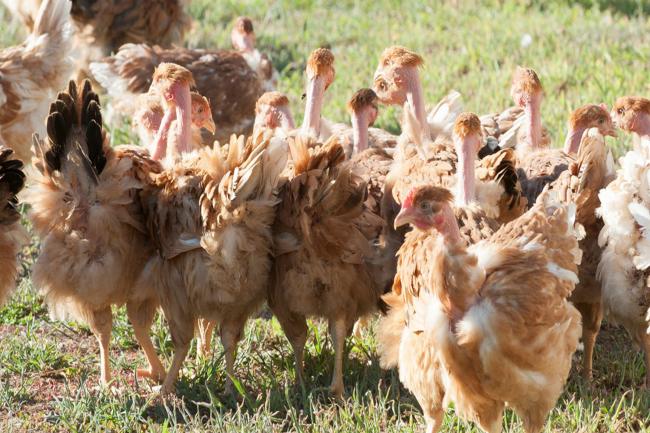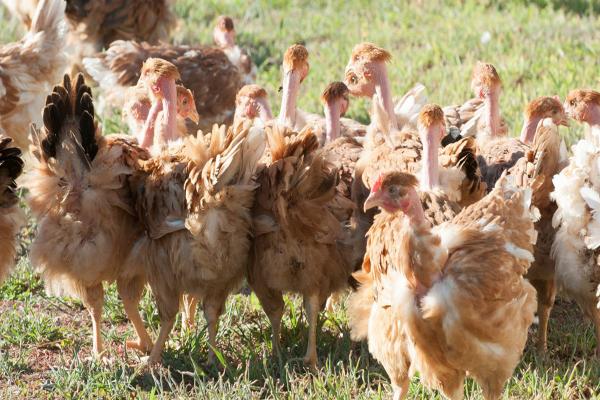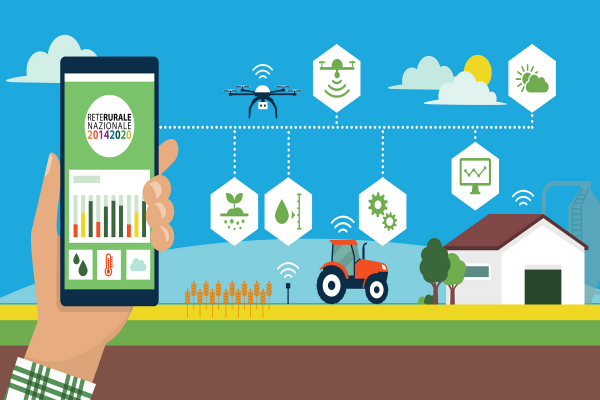Biopackaging in a poultry chain with low environmental impact in compliance with the circular economy

- Replacing traditional packaging with biodegradable packaging.
- Conserving and improving the quality of the soil through the use of quality compost from the output of agro-industrial processes (organic pollen and bioopack).
- Introducing the concept of circular economy in complex agro-industrial systems; the introduction of a compostable packaging allows to qualify the end of life of products for packaging that otherwise could not be effectively recycled; moreover it allows you to report thanks to the compost produced organic substance to the soils. Also the pollen produced will be used as fertilizer in the fields.
- Consolidating models of antibiotic-free poultry farms.
- Tests and chain testing (chicken colonization by fecal material from biological breeds, biopack tests and obtaining compost from biopackaging and field test).
- Qualitative, scientific and technological evaluation (histomorphological and performance assessment at the slaughter of antibiotic free chickens, of the components of biopackaging and field test with compost from biopackaging).
- New processes and product validation in the circular economy (definition of antibiotic free protocol, biopack packaging and composting processes for using such materials as an agent in agriculture).
- Disclosure of results.
The scenario analysis, which follows all the community guidelines contained in the new EU Regulation n. 1305/2013 of 17/12/2013 on rural development (Art.5), was developed taking into account all the European priorities for rural development, especially that of promoting knowledge transfer and innovation in the agricultural and forestry sector and in rural areas. After this analysis, the need for innovation in a complex agro-industrial system is clearly promoted: we want to introduce a poultry supply chain that respects the circular economy thanks to biodegradable materials of vegetable origin (corn starch) in the packaging destined for organic white meat, introduction of the biocompost in the field as an agricultural ammendanete deriving from the composted biopackaging that can be used all in compliance with a supply chain protocol that respects the welfare of the animals thanks to the identification of natural antibiotic free techniques. This need is also confirmed by the Europe that is pushing to initiate a transition towards a circular economy that aims to reduce the withdrawal of natural resources, minimize waste to be disposed of through production and consumption models that prevent the generation of waste : by 2025 each state will have to recycle at least 65% of its packaging waste. The aspects just discussed will be useful to a part of the agri-food sector of the Marche region, which in 2016 has 29,541 companies in the primary sector and manufacturing companies that represent well 20% of total entrepreneurial activities. The sector produces 1 billion and 184 million euros, equal to 3.3% of the Marches' GDP.
The leader CARNJ COOP believes that the establishment of an operating group can foster solid and structured innovation processes that affect the regional and national territory not only on the poultry industry being tested, but also on other livestock supply chains that can consider this new model more respectful of the environment and the circular economy.
The innovation, in short, is to insert a circular economy model in an agro-industrial poultry system with low environmental impact that introduces, as well as antibiotic free farms managed with even more natural and animal welfare methods, above all new materials of origin vegetable biodegradable and biocomponible for packaging the organic product destined for commercialization. This type of innovation represents an absolute novelty for the organic poultry sector and for the agricultural world since the biocompost material can be reusable as a soil improver in agriculture.
| Titolo/Descrizione | Url | Tipologia |
|---|---|---|
|
Sito web del progetto
|
Sito web
|
|
|
Infografica sul progetto
|
Materiali utili
|
|
|
Pagina web del Partner
|
Link ad altri siti che ospitano informazioni del progetto
|
|
|
Pubblicazione finale del progetto
|
Materiali utili
|
|
|
Materiali e articoli
|
Materiali utili
|

